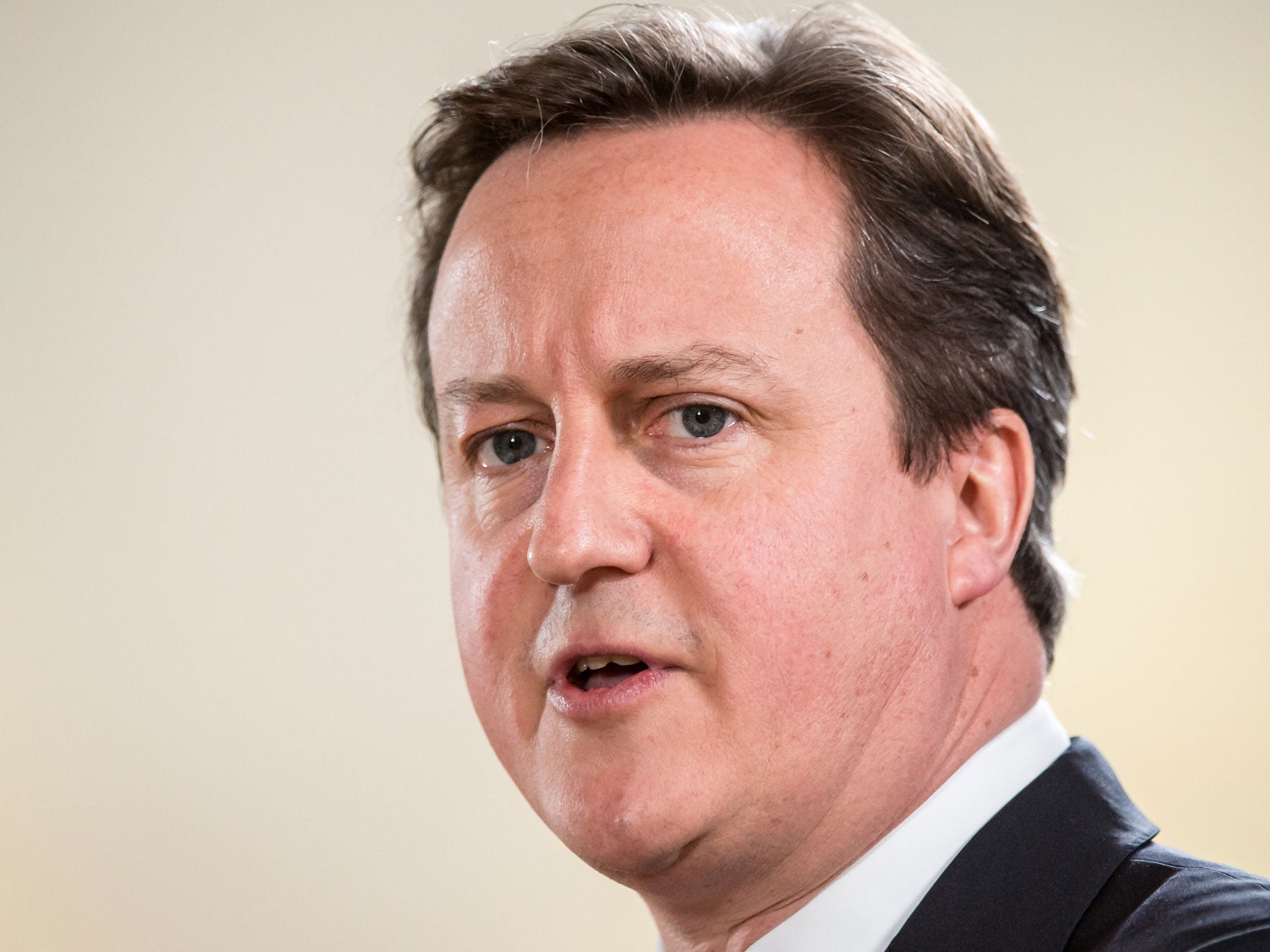David Cameron pledges more visas for trade with India

Your support helps us to tell the story
From reproductive rights to climate change to Big Tech, The Independent is on the ground when the story is developing. Whether it's investigating the financials of Elon Musk's pro-Trump PAC or producing our latest documentary, 'The A Word', which shines a light on the American women fighting for reproductive rights, we know how important it is to parse out the facts from the messaging.
At such a critical moment in US history, we need reporters on the ground. Your donation allows us to keep sending journalists to speak to both sides of the story.
The Independent is trusted by Americans across the entire political spectrum. And unlike many other quality news outlets, we choose not to lock Americans out of our reporting and analysis with paywalls. We believe quality journalism should be available to everyone, paid for by those who can afford it.
Your support makes all the difference.David Cameron has arrived in India with the biggest ever overseas trade delegation for a three day visit in which he hopes to announce deals that will create 500 jobs in Britain.
Bringing with him arms dealers, brewers and department store representatives, Mr Cameron flew into Mumbai and delivered a speech before workers at Hindustan Unilever, the Anglo-Dutch company that has had a relationship with India for more than 120 years.
“I have been prime minister for two-and-a-half years and this is my second time in India,” Mr Cameron told around 700 gathered workers. “But I want Britain and India to have such a special relationship...India’s rise is going to be one of the great phenomena of the 21 Century. Britain wants to be your partner of choice.”
In advance of the visit, Mr Cameron has said he was planning to make things easier for Indian businessmen and women to visit the UK. One of the constant complaints from Indian business leaders is that getting a visa is not only expensive but time consuming. In answer to a question from one member of staff, the prime minister said the UK was going to begin a same-day visa service for the business community.
At the same time, Mr Cameron said India should open up its markets to Britain investment. “I am very proud of that. Britain is an open economy and we encourage that investment,” he said. “I think, in return, we should be having a conversation about opening up the Indian economy, making it easier to do business here, allowing insurance and banking companies to do more foreign direct investment into the Indian economy.”
Interest in the Indian media had been modest ahead of Mr Cameron’s visit. The Times of India, the world’s largest English-language newspaper, devoted its entire front-page to Britain, but only because the British government had paid for a wrap-around cover encouraging people to visit the country; of Mr Cameron’s visit to India there was not a mention.
As it is, among the deals expected to be confirmed as part of the visit are an Ashok Leyland research centre in Warwickshire, expansion of Polaris’s computing services in Belfast and the hiring of 70 new staff at Hinduja’s TalkTalk in Preston. The most shining of the deals appears to be 300 new jobs expected to be created at a Tata delivery centre in Liverpool.
In India meanwhile, it is expected that a number of British companies will also announce new openings, including a plan by Brit Health Care of Wolverhampton to open a centre in Delhi, for Benoy to design a shopping mall in Bangalore and for Intercontinental to open 13 new hotels.
Mr Cameron is due to travel to Delhi tomorrow, where he will held talks with his counterpart Manmohan Singh, and Sonia Gandhi, leader of the ruling Congress party. Among the partnerships Britain is seeking to work with India on is development of a 650 mile corridor between Mumbai and Bangalore.
British officials say the concept would see Britain and India work to develop nine districts linking India’s commercial capital with its southern hi-tech hub. “I’m really excited about this project. It’s an ambitious vision which could truly be a partnership for the next generation,” said Mr Cameron.
In answer to another question from workers at the Unilever plant in the north of Mumbai, Mr Cameron also launched an attack on a “aggressive” tax avoidance, suggesting such moves raised moral questions.
“I believe in low taxes. Governments should be trying to get their rates of tax down so they are competitive, but then I think it is only fair to ask businesses to pay them,” he said.
Another questioner sought to ask Mr Cameron if he had a favourite from among Unilever’s dozens of brands, among them Lipton tea, Lux soap and Sunsilk shampoo. Whether or not he could think of a favourite was not clear. Mr Cameron said he did not want to create headlines by backing any individual product. He said: “I will do what every politician does when asked a difficult question and that is dodge it.”
Mr Cameron later drove to the southern tip of Mumbai to address business leader in the Taj Mahal hotel. The hotel is one of the city’s most iconic landmarks and is located next to the Gateway of India monument. In 2008, the hotel was among several locations attacked by Pakistani militants who laid siege to the city for three days. More than 160 people lost their lives.
Join our commenting forum
Join thought-provoking conversations, follow other Independent readers and see their replies
Comments